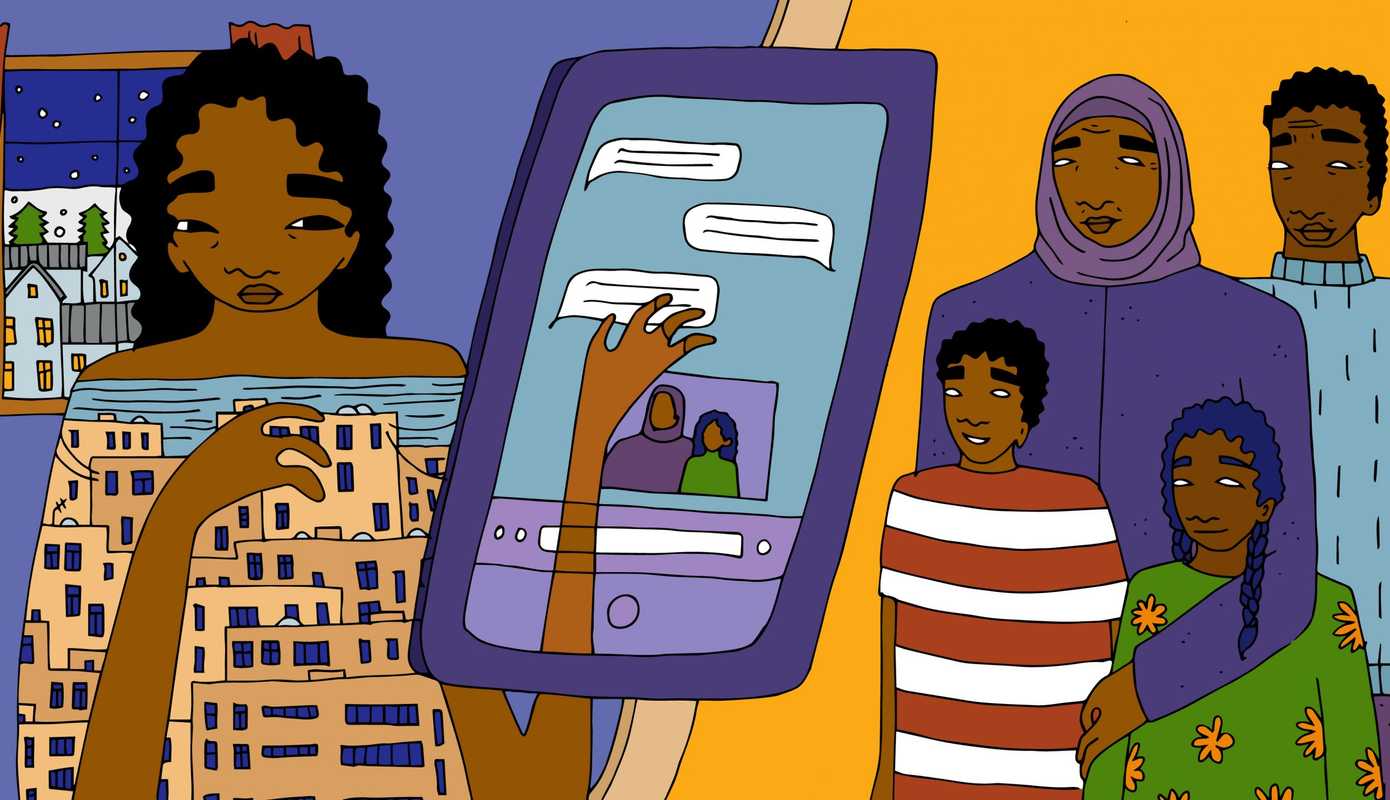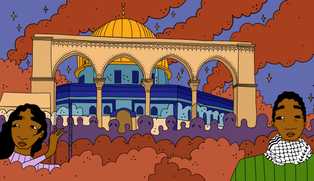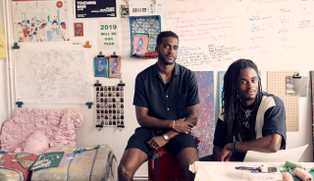This article is part of PALESTINE: WAYS OF BEING, a season centring under-explored areas of Palestinian life and liberation.
Before 1948
Imagine a family tree.
The roots of this tree are entangled so deep into the ground that it would be difficult to picture it anyplace else. The roots of this tree become a stem that grows into branches extending to all corners and curves of Palestine. From an-Naqab desert, where a Bedouin tribe builds a home, to the port city of Yafa, where an African man by way of Sudan lays his head to rest after work one day and ends up meeting his future wife. From a farm in Yafa, where one family raises goats and grows oranges on land their ancestors have tended for several hundreds of years, to a school in Gaza, that welcomes a little girl and teaches a new generation of children how to read.
Now, imagine a family tree – uprooted.
Some time in 1948
My teta Sakeena, the mother of my mother, got a tip that soldiers were going from town to town expelling people from their homes and shooting anyone who resisted. This was during the Nakba.
My grandfather was away. Perhaps for work, perhaps at war – with oral histories there are always conflicting memories. The only story you get is the abridged version. If you’re lucky, someone might disclose another piece later on.
Teta Sakeena had to hide my uncle’s pistol before the soldiers arrived. In a moment of desperation, she wrapped the gun in my mother’s cloth diaper. She held my infant mother close to her chest – a hug between her and the cold metal – as the soldiers raided the house. My family escaped, and that was the last time they saw their farm in Yafa.
After 1948
Only one of my siblings was born in Palestine. The rest of us opened our eyes in nations that didn’t require visas, or accepted work ones: Egypt, Kuwait, the United Arab Emirates. Palestinian labour was welcome – critical even – in the Gulf, but citizenship was never offered. We moved several times before we landed in Canada.
My parents tried hard to instill a sense of Palestinian identity in us. When you entered our house, the smell of maqlubah (a traditional dish consisting of rice with eggplant) wafted through the air. Wein ‘a Ramallah played on cassette and a keffiyeh hung on the door next to a poster of Al-Quds. When we got satellite television, the Palestinian channel was my father’s channel of choice. The announcement of martyrs – those killed by the Israeli state – became part of our daily soundtrack. It didn’t matter how many times we had to move, how many oceans separated us from our homeland; Palestine, the parts of it my parents managed to bring with them and weave together in exile, was always a part of us.
In the 2000s
“Wasn’t it crazy when we had to pretend we couldn’t speak Arabic in front of the Israeli soldiers?” I asked my sister.
I often ask my siblings to confirm certain memories. Palestinian experiences are usually shared in living rooms over coffee, not in history books.
“They told me to say something in French, so I sang Frère Jacques while they all leered at me. I was so uncomfortable.”
We try to piece together what we can. “I don’t remember that,” she answered. “But I remember when they strip-searched me. I was four or five. I’m not sure what they thought they’d find on a toddler.”
We trade traumatic fragments of stories like torn baseball cards. When I ask my mother about these things, sometimes she tells me it’s better to forget. Other times she shares a story about how her mother once had to hide a gun in her diaper.
1995
One of the many Israeli guards at one of the many checkpoints we went through to get into Gaza kept pointing at my baba and I, calling us a word I didn’t understand. When I asked my father what it was, he whispered for me to be quiet, to stop asking so many questions. I was seven years old the first time I saw him try to be invisible.
Your family tries to keep some history buried for a reason.
1999
During what was my last time in Gaza, teta Fatima demanded I read the newspaper in a tone so intimidating, I thought I might spontaneously combust. It took all of my strength to utter that Arabic headline correctly. I was so relieved when I was done… but teta smelled my BS a mile away.
“What does it all mean?” she asked.
I had no idea. I hadn’t understood a single word. She went on to berate my father about my education as I sunk into the sofa. To her, if I didn’t bother understanding what I read, there was no point in reading at all. Her question plays on a loop in my mind. Whenever I come across words written about my people, I ask myself: what does it all mean?
2019
“Your teta Fatima saw a newspaper when she was 10 and asked if she could learn how to read it,” my aunt revealed during a phone call. “The men of the tribe said no. Your great-grandmother took offence to them making decisions for her family, because she was a widow at that point. So she escaped with your teta on a donkey in the night. From an-Naqab desert to the city of Gaza. Can you imagine? It took them 24 hours. They almost died! But when they made it to the city, your teta learned how to read within a month. She started school and was top of her class. She studied medicine and became the first Black nurse in all of Palestine. Didn’t your father tell you about any of this? Allah yerhamo (God rest his soul), he was so guarded about these things. It’s okay, don’t be upset. Listen to me. Our history is still ours to discover. There’s so much left to learn.”
Since 2020
I combed through several family albums that had been gathering dust for years. I asked my mother about them and more stories were revealed. I shared them with my nieces and nephews. I told them some of my own.
One photo of their grandfather caught their attention. He stood on stage, in front of a mic, wearing a “very 70s style outfit” according to my nephew, featuring a satin deep v pullover vest, black bell bottoms and an ascot tie. He completed the look with a confident smile straight at the camera. He looked as though he was ready to perform.
“Your jido hosted a lot of events,” I explained. “With the community centre, back in Abu Dhabi. I was told he was a great host.” They listened in awe.
These stories – our stories – are part of a kaleidoscope of what it means to exist as a Palestinian. We all have our ways of preserving our identity. In my case, I share what I know and keep my teta and aunts’ words close to my heart. As I discover more and share this history on my own terms, I begin to understand what it all means.
“Come. Let me tell you,” I say to my nephews and nieces. “There’s so much left to learn.”
*
At Skin Deep, we make space for Black creatives and creatives of colour to tell radical stories that help usher just new worlds into being. We are a non-profit community interest company and funding is a constant struggle, particularly for some of the issues we believe are the most urgently deserving of our care and attention – like Palestinian liberation. If you believe in the importance of stories like the ones in this season, please support our organisation: become a member, or make a one-off donation.



